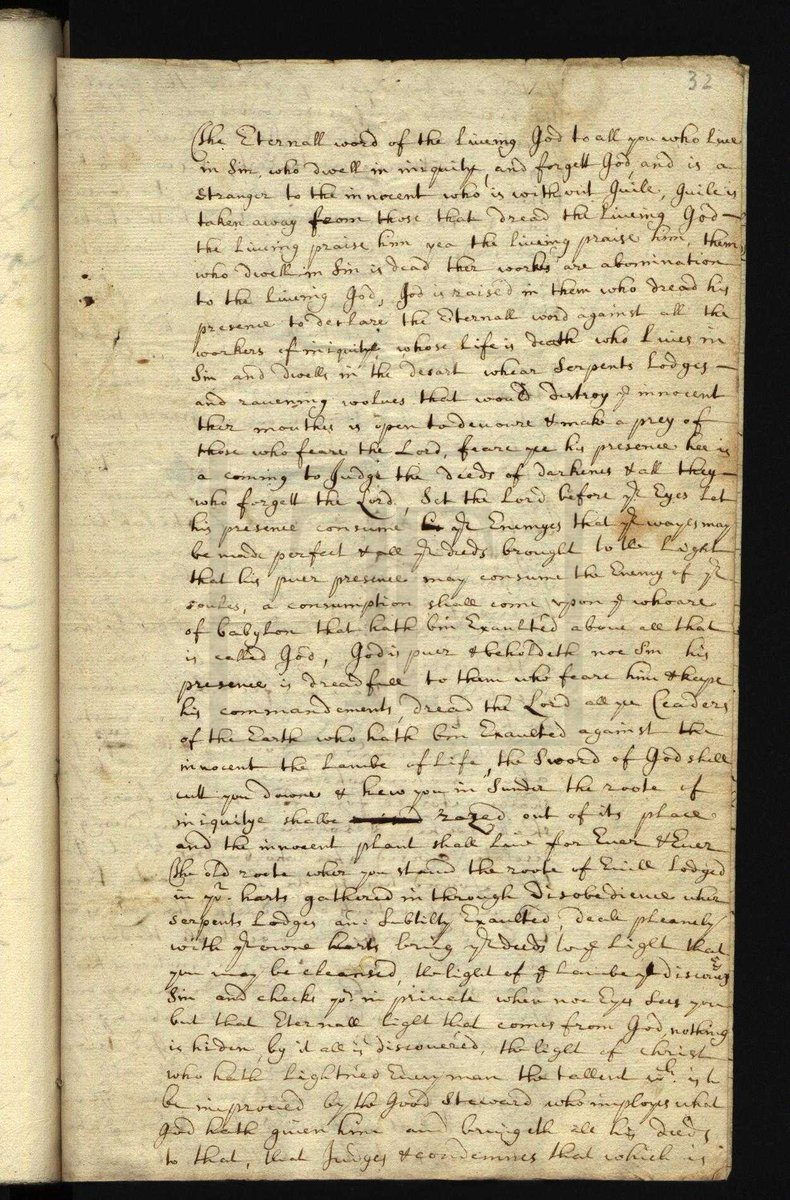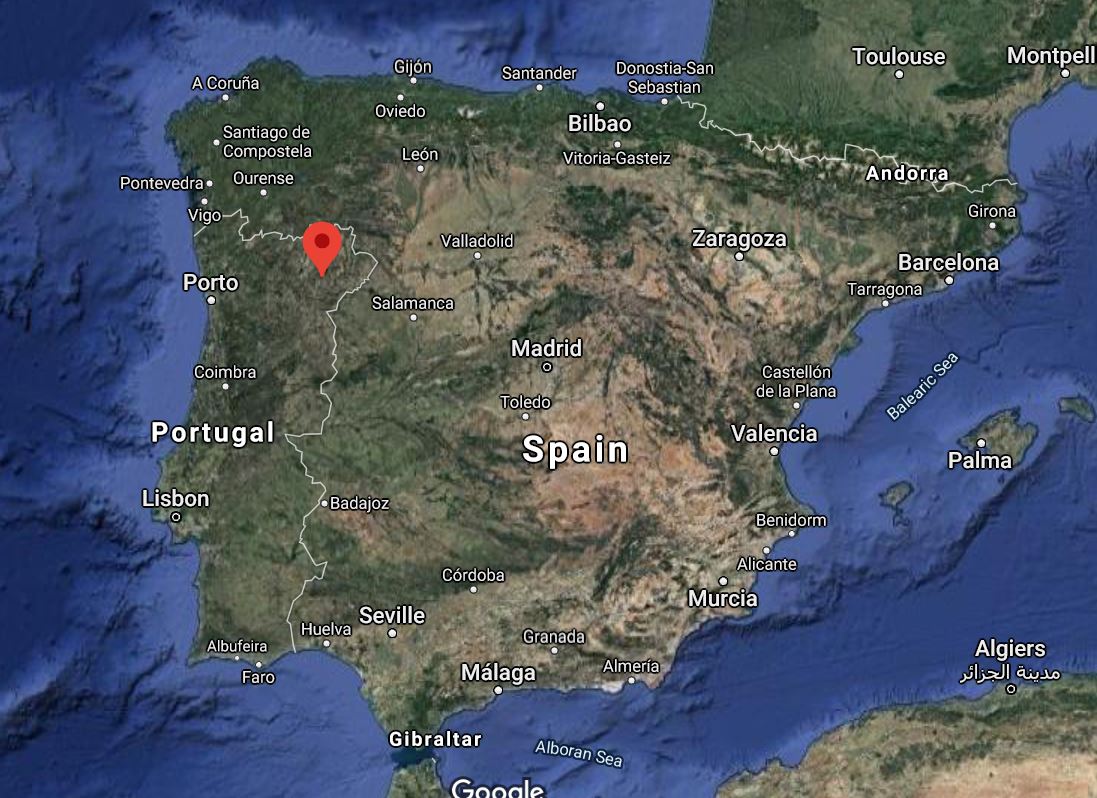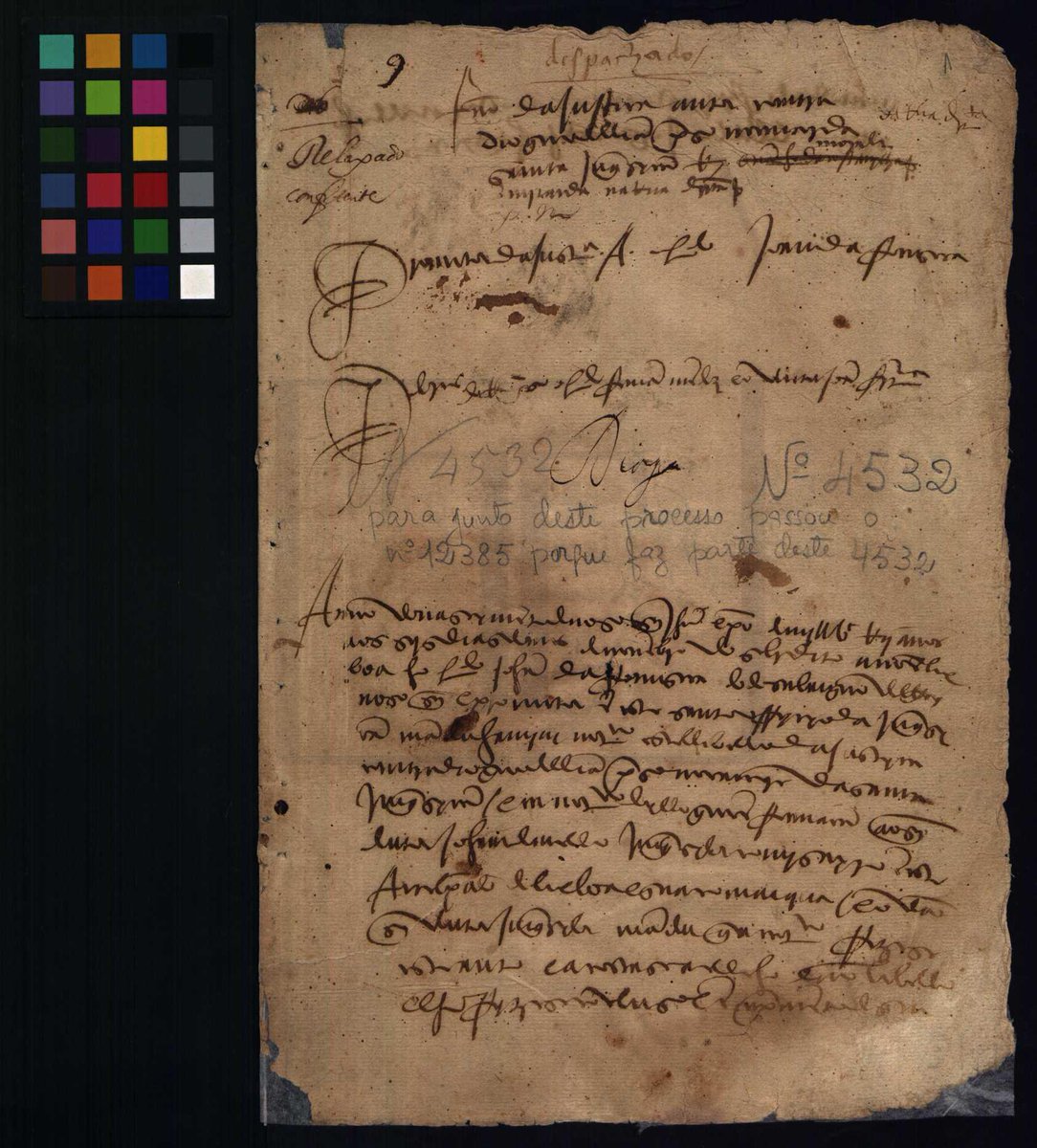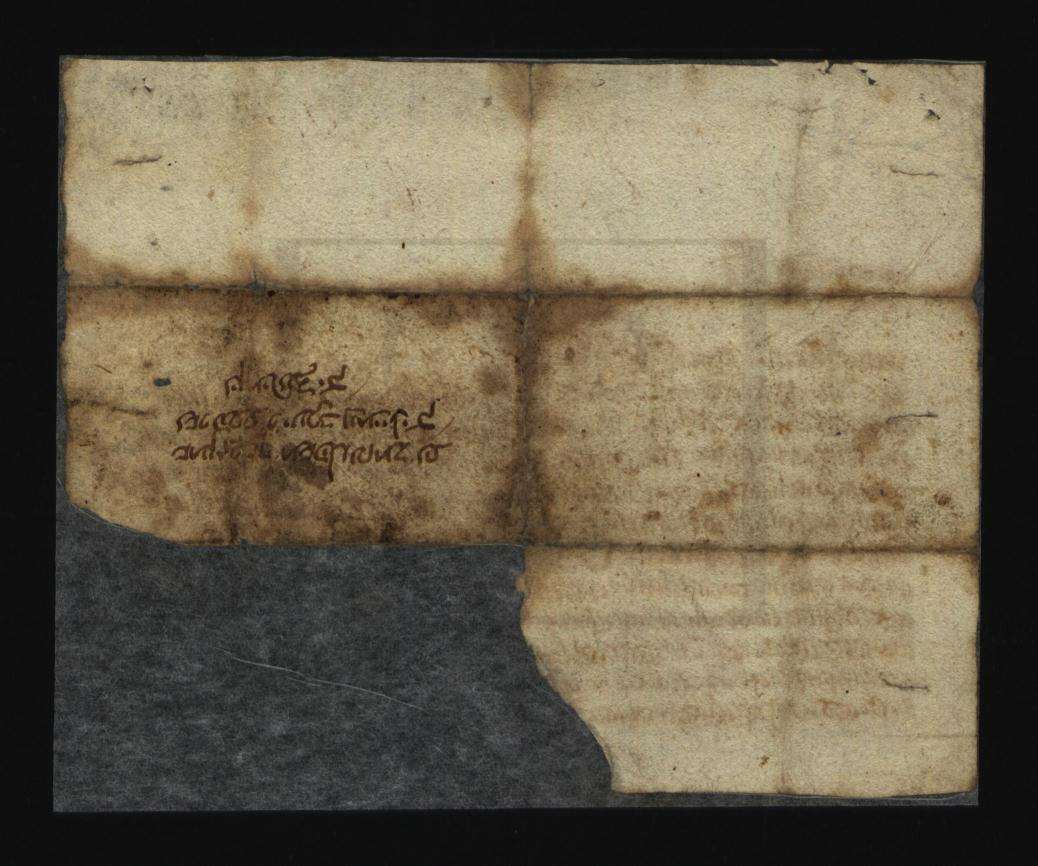
1/ Stories from the Archives of the Inquisition: Meet Anne Gargill, the Quaker woman who traveled by ship to Portugal in 1656 to chat with the King and convert him... and instead got to chat with the Inquisition. #twitterstorians 

2/ In 1654 Cromwell's England and the Kingdom of Portugal made a peace treaty that (re)established commercial links between the two countries.
3/ The treaty between Protestant England and Catholic Portugal was principally motivated by the need to form an alliance against Spain, which both countries were fighting. It was not popular with the Catholic Church in Portugal.
4/ In 1656, a 30 year-old woman landed in Lisbon, coming off a ship that had just arrived from Plymouth. She told some people that she wanted to talk to the King of Portugal about his Salvation.
5/ Missionary preaching of any kind by Protestants was illegal and the Portuguese Inquisition always kept a look out for such Protestant "dogmatizers". The English merchants who came on the same ship rightly feared that she was stirring trouble.
6/ Although the woman, whose named was Anne Gargill (transformed into Gargim in Portuguese records) was quickly taken back to the ship, news nevertheless got to the Inquisition. She was seized and interrogated.
7/ For the inquisitors, Anne represented somewhat of an oddity. They had never encountered the Quakers before. The interpreter exclaimed to them that he wasn't sure whether "Quakers" meant "those who are afraid or who tremble"... 
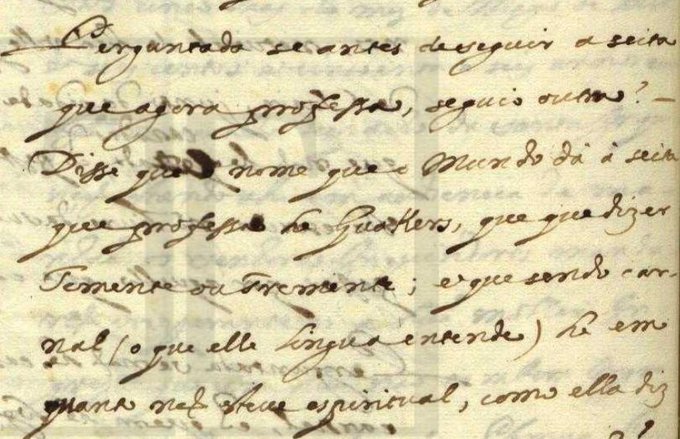
8/ ... but the inquisitors rapidly realized that this was "a new sect" in England. The interrogation offers a remarkable insight into the inquisitors' desire to know more about this new "heresy"...
9/ ...and Anne was questioned long and hard about her beliefs, especially about the Holy spirit/spirit of God.
10/ The inquisitors were particularly intrigued when Anne claimed that her faith included "no ceremonies" (i.e. rituals) and that she refused to swear an oath on the Gospels or sign the transcript of her interrogation. 
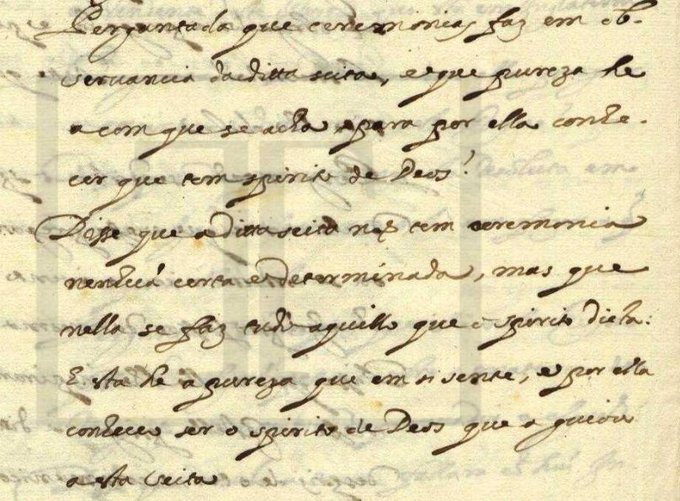
12 and end/ Anne Gargill was ordered back to the ship and effectively expelled from Portugal. The original inquisitorial investigation has been digitized by the Portuguese National Archives and is available open access:
digitarq.arquivos.pt/details?id=231…
digitarq.arquivos.pt/details?id=231…
• • •
Missing some Tweet in this thread? You can try to
force a refresh
